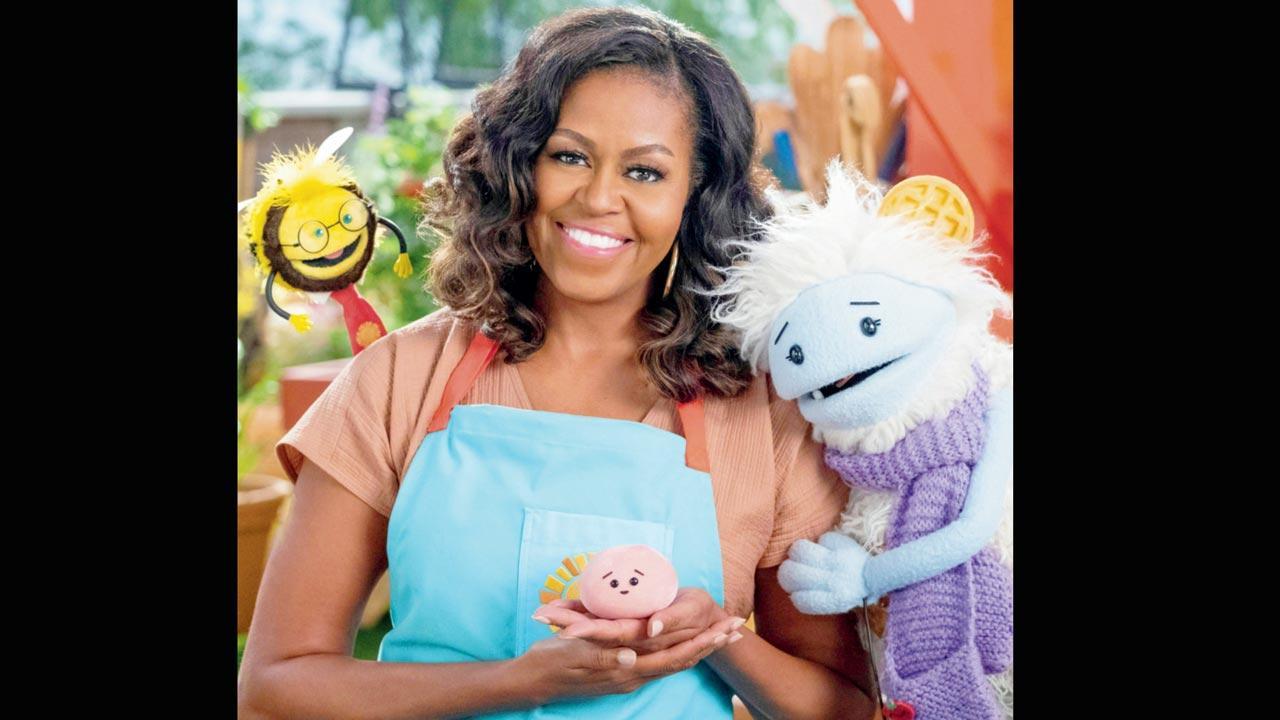This year, we’ll get to see former First Lady Michelle Obama team up with puppets for a cooking show for kids. If you’d like to dabble with puppetry too, we’ve invited an expert to get you started

Waffles+Mochi releases on Netflix on March 16. Pic/Facebook
To bring “light and laughter” to homes around the world, Michelle Obama is launching a food show for kids on Netflix on March 16. It’s called Waffles+Mochi because it revolves around two puppet bffs Waffles and Mochi, aspiring chefs who travel across the globe to source ingredients and cook with famous chefs, home chefs, kids and celebrities.
ADVERTISEMENT
The former First Lady said the show was an extension of her work to support children’s health. It also shows how puppetry can be used as a pedagogical tool. And if you want to learn how, we invited award-winning city-based puppeteer Usha Venkatraman to share tips. “Puppetry is an ancient art form that originated in India, before travelling to many lands. The first thing you have to remember about it is that it calls for a willing suspension of disbelief; there is no limit to creativity and the way stories can be told through puppets,” she says.
Usha Venkatraman
The material is immaterial
You don’t need a whole lot of supplies to make a puppet. Even scrap will do, says Venkatraman. Detailing can be added via accessories like a ribbon or colouring mediums such as crayons and watercolour. The movement of the object is what matters the most. She shares a method to make a simple puppet by paper folding: “Take an A4-sized paper, and fold its length into three parts. Then, fold it into half and refold it on both sides. You can then insert your hands inside it and dress it up with colour and accessories.” A sock puppet is another easy alternative where you can place googly eyes on a sock.
Tool for education
Venkatraman, who has used puppets to teach a range of subjects, including scientific concepts, gives Obama’s food show a thumbs-up. Even a bun pav can become a puppet. “I had once asked a chef to decorate a bun for puppetry, and use [Cadbury] gems as the eyeballs, for instance. And, the story one can convey for children aged two and three — an adaptation of the story of The Gingerbread Man — is that of how Mr Bun runs away from grandma and grandpa and meets a milk-woman. It’s essentially a story of how a bun is made with flour, sugar, butter, cream. Here, you can do body movements to show how you pummelling and making the dough, and putting it in the oven where it rises slowly ‘up, up, up’ and ‘down, down, down.’ This is how basic STEM education takes place,” she explains.
A puppet made using a bun by Venkatraman
Puppets are not just for children. With prior experience of conducting puppetry workshops for corporate leaders, Venkatraman asserts that sometimes it is easier to get one’s point across with a puppet as compared to face to face communication. “When you hold a puppet, it’s as if the puppet is speaking. So, you convey your point through it,” she says.
Puppetry ready
Read
. A Handbook of Puppetry by Meena Naik
. The Complete Book of Puppetry by George Latshaw
. The Land of Punch and Judy: A Book of Puppet Plays for Children
Watch
. Sesame Street
. The Sound of Music
. Parichay
 Subscribe today by clicking the link and stay updated with the latest news!" Click here!
Subscribe today by clicking the link and stay updated with the latest news!" Click here!






